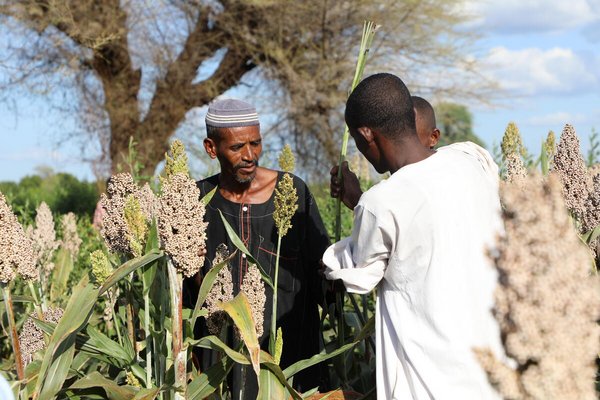- Share this article
- Subscribe to our newsletter
Sudan – deep impacts from civil war on agriculture
After nearly 11 months of civil war, almost 18 million people in Sudan are facing acute food insecurity. This is the highest number ever recorded during a harvest season, the United Nations Food and Agriculture Organization (FAO) reported in March 2024. Additionally, Sudan is facing the world's largest displacement crisis, with more than 8 million people having been displaced since the conflict started in April 2023.
Sudan's economy relies heavily on agriculture, with about 65 per cent of its population engaged in this sector. Due to the ongoing conflict, agricultural production has been restricted, major infrastructure and livelihoods have been damaged, trade flows have been disrupted, and prices have significantly increased. Additionally, humanitarian access has been constrained, resulting in large-scale displacement. The conflict has now also spread to the state of Al Jazirah, which produces approximately 50 per cent of wheat and 10 per cent of sorghum, essential crops for the country.
The performance of the 2023 main cereal production season was very poor due to the impact of the conflict, at 46 per cent below the harvests of the previous year. The sharpest reductions were recorded in the Greater Kordofan and in the Greater Darfur regions, where the conflict is particularly intense. In these areas, cereal production is estimated at up to 80 per cent below average. Alarmingly, in West Darfur State, widespread insecurity prevented farmers from accessing their fields, causing a total failure of the cropping season.
In 2023, most inputs, including fertilisers and herbicides, and agricultural machinery, were very scarce and extremely expensive. In addition, they were often not available in a timely manner, thus delaying planting and other agricultural operations. Most farmers utilised seeds retained from the harvest of the previous year because of high market prices and absence of seeds distribution carried out by the Federal Ministry of Agriculture and Forestry (MoA&F), according to the Crop and Food Supply Assessment Mission (CFSAM) carried out by FAO to estimate the 2023 crop production and assess the food supply situation in the country. FAO distributed around 10,000 tonnes of certified seeds across the country. Labour was generally available, but at high prices given the increased cost of living.
Cereal import requirements in 2024, forecast at about 3.38 million tonnes, raise concerns about the financial and logistical capacity of the country to meet these import needs. The high production costs of cereals are likely to further inflate market prices, which are already at exceptionally high levels. In December 2023, prices of cereals were up to twice their already high levels of one year earlier.
(FAO/ile)
More information:





Add a comment
Be the First to Comment